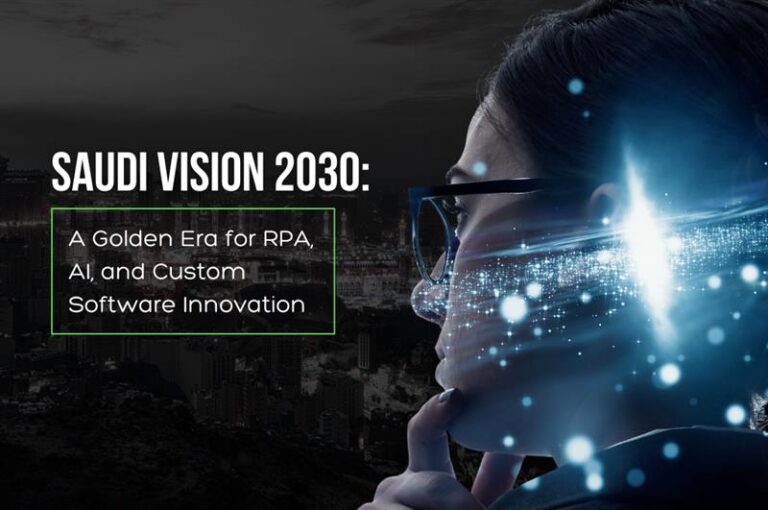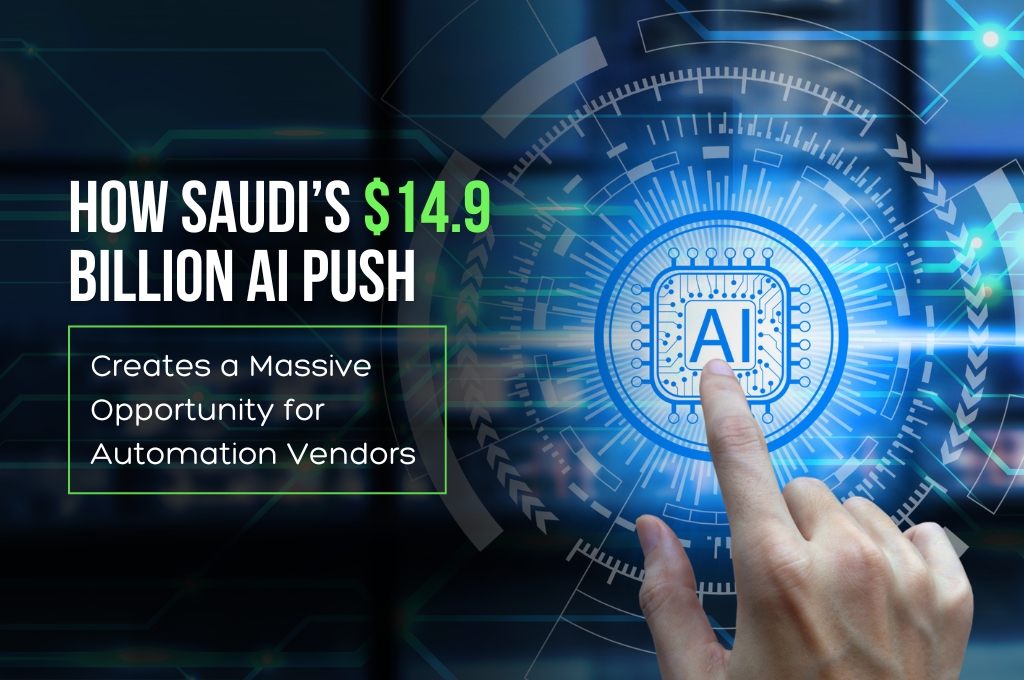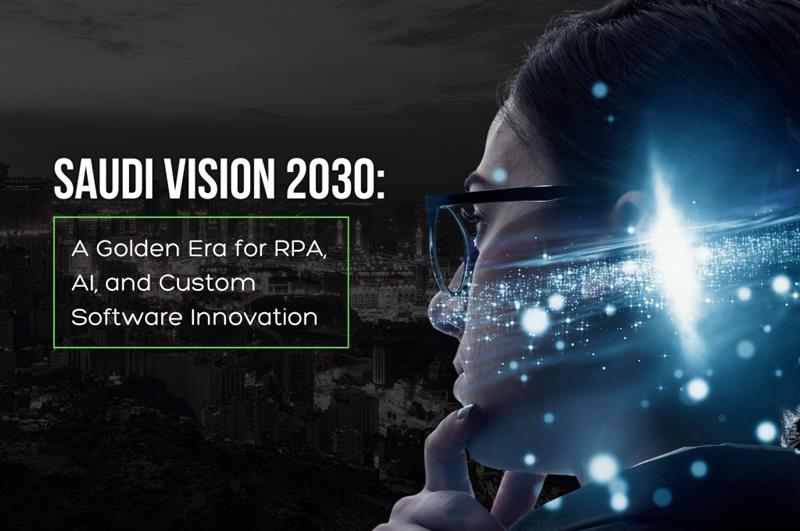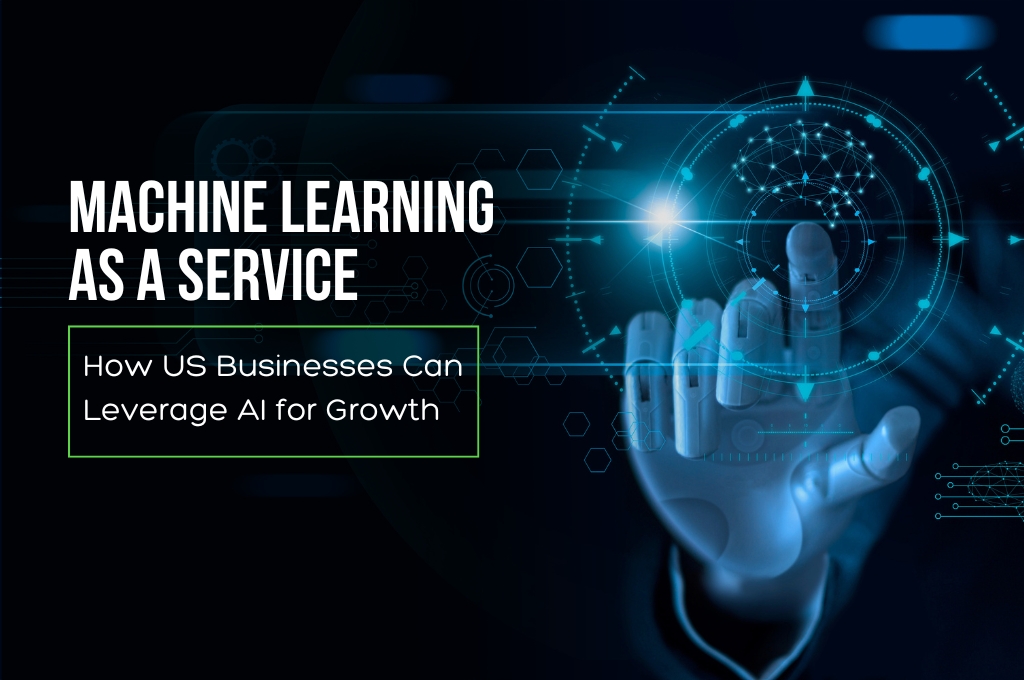In recent years, Saudi Arabia has emerged as one of the most promising technology hubs in the Middle East. Backed by strong government support and bold national strategies, the Kingdom is undergoing a massive digital transformation. From smart cities and cloud infrastructure to AI-powered governance, the country is rapidly integrating advanced technologies across sectors. This shift isn’t just about modernization – it’s about shaping a sustainable, innovation-driven future.
As Saudi businesses and government entities embrace new technologies, the demand for enterprise AI solutions, custom application development, and intelligent automation continues to rise. Whether it’s enhancing efficiency in public services or building smart infrastructure, technology now lies at the heart of the nation’s growth model. This blog explores how Saudi Vision 2030 plays a pivotal role in this transformation-and what it means for AI, RPA, and custom software firms in this evolving landscape.
What Is Saudi Vision 2030?
Launched in 2016, Saudi Vision 2030 is the Kingdom’s ambitious roadmap to diversify its economy, reduce reliance on oil, and transform key sectors such as education, healthcare, tourism, and technology. Spearheaded by Crown Prince Mohammed bin Salman, the initiative emphasizes innovation, private sector growth, and enhanced quality of life.
Technology plays a foundational role in this vision-ushering in smart cities, e-governance, and digital public services. From automating government workflows through RPA services to investing in AI research and data infrastructure, Vision 2030 aims to position Saudi Arabia as a global tech and innovation hub. It’s not just a policy-it’s a shift in national mindset toward embracing the future.
What Vision 2030 Means for AI, RPA, and Custom Tech
Saudi Vision 2030 isn’t just encouraging technology adoption-it’s actively reshaping how sectors operate using automation, data, and artificial intelligence. With an emphasis on government efficiency, citizen services, and digital infrastructure, the demand for intelligent solutions is growing rapidly.
This presents a major opportunity for firms offering enterprise AI solutions that can analyze vast datasets, optimize public systems, and enhance service delivery. Meanwhile, RPA services are helping eliminate manual workflows in banking, telecommunications, and government offices-speeding up processes like KYC, HR management, and compliance.
As more institutions transition to digital platforms, there’s also a rising need for custom application development to build localized, scalable tools tailored to Saudi regulations and use cases. Whether it’s AI chatbots for government portals or RPA bots for finance and logistics, Vision 2030 has created a thriving space for innovation. For forward-thinking tech providers, this ecosystem is both a challenge and a tremendous opportunity to build impactful, future-ready solutions.
Examples of AI and RPA in Vision 2030
Saudi Arabia’s push for digital transformation is not theoretical-it’s already in motion. Below are some of the most prominent real-world applications of enterprise AI solutions, RPA services, and custom application development under the Vision 2030 framework:
1. NEOM: A City Designed by AI
NEOM, the $500 billion megacity project, is a cornerstone of Vision 2030. It’s designed to operate as a fully integrated smart city, leveraging AI for everything from urban planning to mobility. Predictive systems are being developed to manage energy, security, and logistics efficiently. NEOM is a living lab for AI and custom software, creating demand for scalable, real-time applications that go beyond traditional smart city models.
2. SDAIA and the AIPA Platform
The Saudi Data and AI Authority (SDAIA) is the brain behind the country’s national AI vision. It launched the AIPA (AI-Powered Assistant) platform to streamline government communication and decision-making. AIPA is a prime example of enterprise AI solutions supporting data-driven governance. SDAIA also actively invites partnerships for custom application development, reinforcing the Kingdom’s openness to global tech collaboration.
3. RPA in Banking and Telecom
Major Saudi banks like Al Rajhi and telecom giants like STC have deployed RPA services to enhance operational efficiency. Use cases include automating KYC processes, fraud detection, invoice handling, and HR management. These implementations not only cut costs but also improve accuracy and compliance-core goals of Vision 2030’s digital governance mission.
4. Healthcare Transformation with AI
Saudi Arabia’s Ministry of Health has adopted AI for diagnostics, outbreak forecasting, and hospital resource optimization. During COVID-19, the Tawakkalna app emerged as a key digital tool, powered by AI-driven analytics. Healthcare continues to be a high-impact sector for enterprise AI solutions, particularly in public health and patient management systems.
As Saudi Arabia accelerates toward its Vision 2030 goals, the role of technology continues to expand across public and private sectors. From intelligent automation in banking to AI-powered urban infrastructure, the Kingdom is building a foundation for long-term digital excellence.
At Predikly, we specialize in enterprise AI solutions, custom application development, and RPA services that align with forward-looking initiatives like these. While we aren’t here to pitch-we simply wish to express our readiness. If you’re a Saudi business or institution exploring the power of automation or AI-driven systems, we’d be glad to support your journey with thoughtful, tailored solutions.
Let’s Connect
If you’re curious about how these technologies can work for your organization, we’d love to listen, explore, and collaborate-on your terms. Just reach out, and let’s start a conversation.




